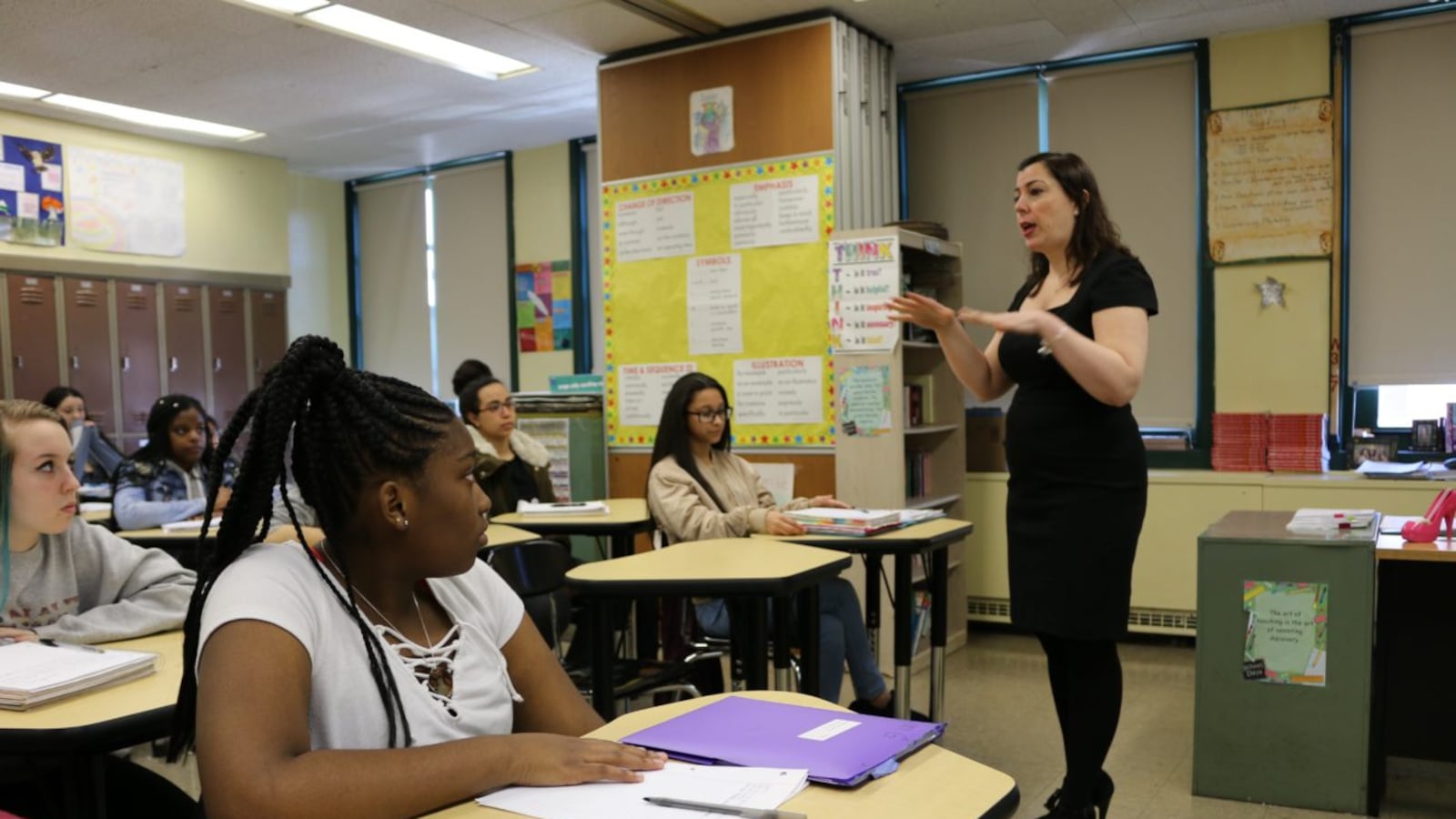Gov. Eric Holcomb is speeding up what he introduced as a slow and “methodical” approach to raising Indiana’s teacher salaries over the next several years, saying action could take place in 2019.
“The deeper that I dig, the more optimistic that I get that we will be able to fund my priorities that I articulated when rolled out the agenda,” Holcomb, a Republican, said in an interview with Chalkbeat on Tuesday, adding that he thinks that can get more money “into teacher paychecks” as well as increased dollars to schools during the upcoming two-year budget cycle.
Tuesday’s comments deviate from Holcomb’s legislative agenda announcement earlier this month, when he did not present a plan to increase teacher salaries in 2019 or 2020. Then, Holcomb said he was taking time to study the issue closely and have discussions, holding off on major changes until 2021.
But Holcomb suggested Tuesday that he would take a slightly more aggressive, if still vague, approach to teacher pay in light of a more favorable-than-anticipated state revenue forecast.
It’s not yet clear how Holcomb plans to make that happen — he said he’ll make his budget request to lawmakers in early January. But it seems like such a move could require quite a bit of budget gymnastics, which is an even bigger challenge for the state in a year when the top Senate budget-writer is new to the role and House Ways & Means Committee Chairman Tim Brown is still recovering from a serious accident. Additionally, 2019 promises to be a tight budget year, with numerous priorities competing for finite resources.
Indiana is on track to have a little more than $800 million in new revenue over the next two-year budget cycle, slightly higher than what lawmakers predicted earlier this fall. But higher-than-expected Medicaid costs and steep funding requests from the Department of Child Services leave about $35 million left for everything else. In recent years, the state has added between 2 percent and 3 percent for school funding each year alone, usually between $300 million and $400 million — and that’s just to try to keep pace with inflation.
Even if lawmakers and state agencies can find ways to trim existing budgets and pare down what DCS is requesting, it’s hard to see where extra money for teacher raises could come from, or, if a portion of a school funding increase were to be carved out for teacher pay specifically, how the state could ensure it gets to salaries.
The governor’s agenda already proposes raising the $100 tax credit teachers can get to buy classroom supplies to $500, which would be funded in part by money that previously was spent on bonuses teachers received for positive yearly evaluations. The rest of that annual $30 million grant will be put back into the bigger pot of money all schools draw from.
Already, the state’s largest teachers union and other education advocates — some of which tend to disagree on education policy — are hoping for action sooner rather than later.
Indiana Democrats, who are in the minority in both the House and Senate, have criticized the governor and fellow Republican lawmakers for increasingly offering business tax incentives, money they say could go toward education and teacher raises.
“Our teachers need raises now,” Sen. Karen Tallian, a Democrat from Portage, said in an emailed statement. “One way to build additional revenue would be to put an end to the additional corporate tax cuts that are set to continue through 2022. These further rate cuts are costing our state millions of dollars each year.”
Tallian also took issue with Holcomb’s bold statements on Indiana’s budget-writing. Lawmakers create the budget, though the governor must approve it.
“It is not the role of the governor to dictate how money is appropriated in this state,” she said.
Lawmakers head back into session in January, with first drafts of the budget usually coming out in February.
“That budget forecast left me optimistic,” Holcomb said. “and I think others will arrive there too.”


